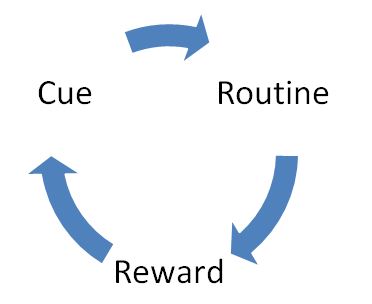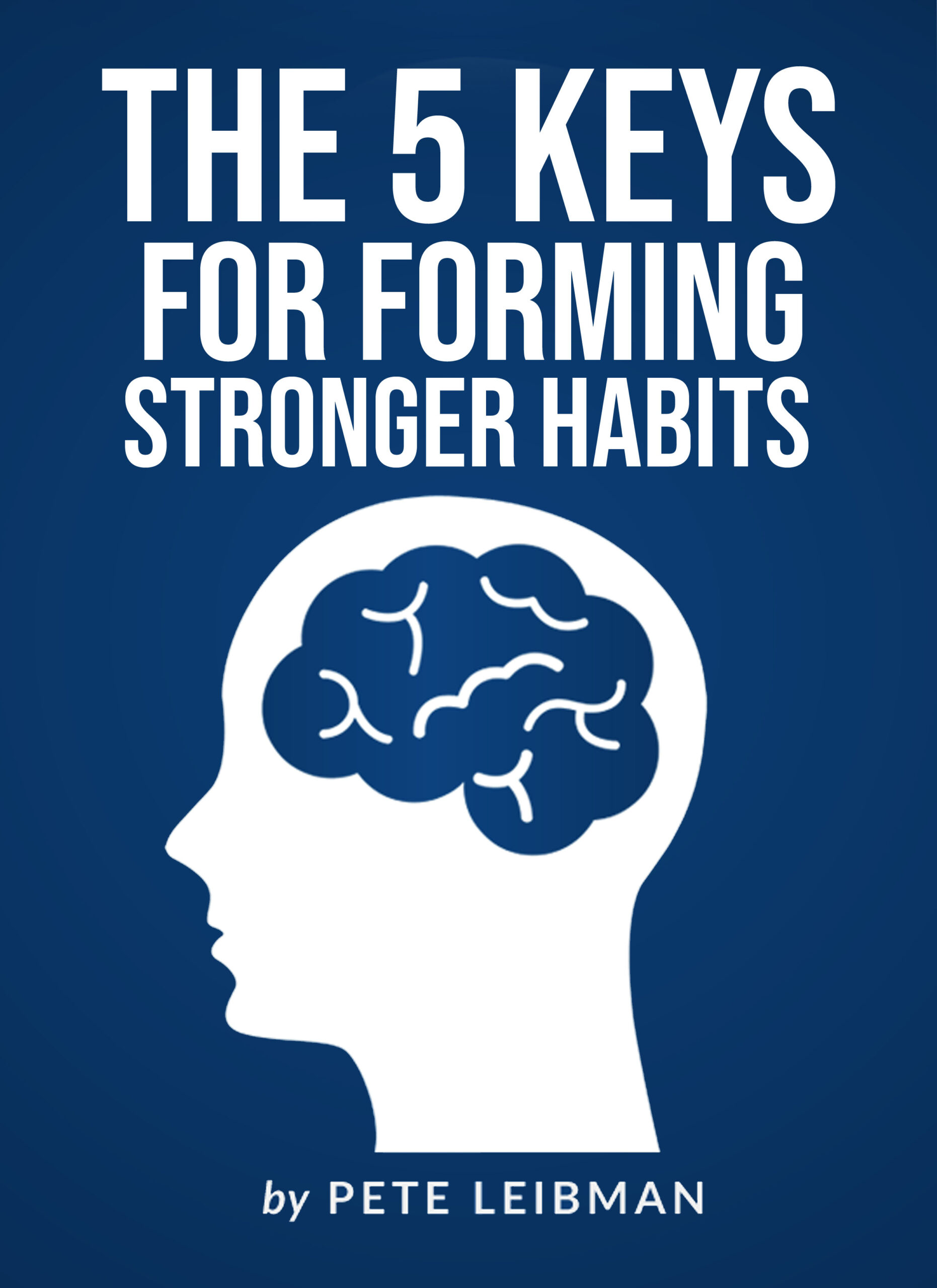
“The Habit Loop” by author Charles Duhigg
When people typically think of forming a new habit, they usually just try to stop doing or start doing a certain behavior. This approach is rarely effective because habits do not occur in a vacuum.
In The Power of Habit: Why We Do What We Do in Life and Business, Author Charles Duhigg shares an excellent framework on how our brains form habits. He refers to this process as “The Habit Loop.”
As Duhigg writes, “This process within our brains is a three-step loop. First, there is a cue, a trigger that tells your brain to go into automatic mode and which habit to use. Then, there is the routine, which can be physical or mental or emotional. Finally, there is a reward, which helps you figure out if this particular loop is worth remembering for the future … Over time, this loop-cue, routine, reward; cue, routine, reward-becomes more and more automatic. The cue and reward become intertwined until a powerful sense of anticipation and craving emerges.”
While bad habits provide dangerous or even deadly consequences over the long-term, they form because of the rewards they provide in the short-term. Habits – both the good kind and the bad kind – get stronger and stronger as you begin to yearn for the reward at the end of the loop. That is essential. The cue and reward are not sufficient on their own. As Duhigg writes, “Cravings are what drive habits. And figuring out how to spark a craving makes creating a new habit easier … every morning, millions put on their jogging shoes to capture an endorphin rush they’ve learned to crave.”
If you eat a lot of junk food or snooze through your alarm every morning, it is not because you lack willpower. It is because you have succumbed to the dark side of “The Habit Loop” that all of our brains are governed by.
If you eat a lot of kale or crush it at the gym at 6:00 a.m. each morning, it is also not because of willpower. It is because of the bright side of “The Habit Loop” that all of our brains are governed by. Our brains form habits as a way to conserve energy. That way, you do not have to think about how to tie your shoes, how to brush your teeth, how to drive a car, and so on.
To be clear, you don’t have to eat kale or exercise before work, if you don’t want to. That’s not the point. The message is that virtually every behavior – good or bad – is simply the result of a process that you can change.
P.S. If you enjoyed this article, check out my free 40-page eBook and newsletter below.

Free eBook and Newsletter
Download my free 40-page eBook on “The 5 Keys for Forming Stronger Habits.”
You’ll also receive my free weekly newsletter on how to become your strongest self.
Your email is safe. Unsubscribe anytime.
About the author: Pete Leibman is the Creator of StrongerHabits.com. He is a best-selling author, keynote speaker, executive recruiter, athlete, and peak performance coach. His work has been featured on Fox News, CBS Radio, and CNNMoney.com, and over 500,000 people across the world have read his articles.
References for this article:
- Charles Duhigg. The Power of Habit: Why We Do What We Do in Life and Business. New York: Random House Trade Paperbacks, 2014.

